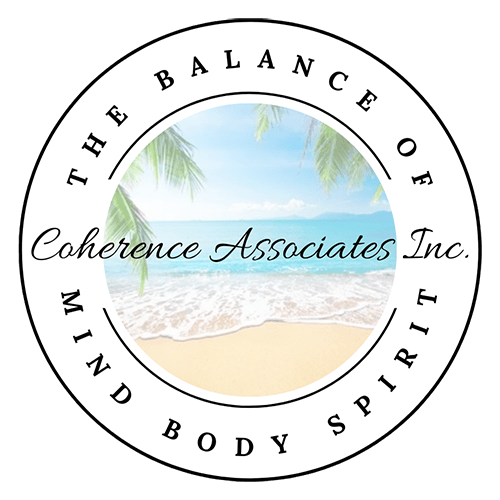Loving Someone with PTSD
How can trauma impact a relationship?
Due to the insidious nature, and often-misunderstood symptoms of Post Traumatic Stress Disorder, the person, and his or her family, may suffer in silence. The pile up of traumatic stress, or surviving a traumatic event, can cause a person’s brain and body to struggle, and work too hard. Post-trauma stress is a normal reaction, to abnormal, or life threatening, experiences. Symptoms of irritability, sleep problems, social withdrawal, and emotional sensitivities are common.
The trauma survivor with Post Traumatic Stress Disorder (PTSD) may have trouble with their close family relationships or friendships. The symptoms of PTSD can cause problems with trust, intimacy, communication, and even problem-solving. These problems may affect the way the survivor acts with others. In turn, the way a loved one responds to him or her affects the trauma survivor. A circular pattern can develop that has the potential to harm relationships.
How do trauma survivors feel? How is their behavior affected?
Survivors with PTSD may feel numb, or distant from others. They may show less interest in social or sexual activities. Because survivors often feel irritable, on guard, jumpy, worried, or nervous, they may lack the ability to relax or be intimate. They may also feel an increased need to protect their loved ones, acting in over-protective ways that don’t seem to fit the situation. They may come across as tense or demanding.
Trauma survivors often have trauma memories, or “flashbacks”. He or she might go to great lengths to avoid these memories, going as far as avoiding any activities that could trigger a memory. Not wanting to go to certain events, or be with certain people, is common. Families often think they are ‘just being unreasonable,’ when actually they are trying to feel ok, and not more stressed. If the survivor has trouble sleeping, or has nightmares, both the survivor and their partner may not be able to get enough rest. This may make sleeping together difficult. Now both people are tired and irritable.
Survivors often struggle with intense anger and impulses. In order to suppress angry feelings and actions, they may avoid closeness, pushing others away, or find fault with loved ones and friends. They may engage in excessive drinking or drug use, which can be an attempt to cope with PTSD symptoms of anxiety, hyper-vigilance, flashbacks, and uncomfortable thoughts. Verbal or physical violence can occur.
In other cases, survivors may depend too much on their partners, family members, and friends. This list can also include support persons such as health care providers or therapists.
Dealing with these symptoms can take up a lot of the survivor’s attention. He or she may not be able to focus on their partner. It may be hard for them to listen carefully, and make decisions with someone else. Partners may come to feel that talking with the survivor, and working with them as a team, is not possible, so they don’t include them, don’t depend on them, and start to operate alone. This can lead to loneliness and frustration.
Trauma Types and Relationships
Certain classes of “man-made” traumas can have a relatively severe effect on relationships. These traumas include: medical problems, car accidents, childhood sexual and physical abuse, rape, kidnapping, domestic violence, military combat, terrorism, and torture. The witnessing of any of these situations can also be highly traumatizing to anyone.
Survivors of man-made traumas often feel a lasting sense of terror, horror, endangerment, and betrayal. These feelings affect how they relate to others. They may feel like if they let down their guard, if they get close to someone else, and trust them, they will be hurt or injured in some way. This is not to say a survivor can’t feel a strong bond of love or friendship, they certainly can. However, a close relationship can feel scary or dangerous at times, to a trauma survivor.
How can you help your loved one? Understanding what is happening is the first step.
Relationships with others are very important for trauma survivors. Social support is one of the best assets to protect against getting PTSD. Relationships have the potential to offset feelings of being alone and may also help increase the survivor’s self-esteem. In turn, this may ultimately help to reduce depression and guilt. A relationship can also give the survivor a way to help someone else.
Helping others can reduce feelings of failure, or feeling cut off from others. We urge you to listen and offer your support and understand that the survivor may not always want to talk about what happened, if at all. Further educating yourself on PTSD, is a great step toward being the type of supporter that you hope to be.
Couples counseling with a professional counselor, who understands the impact of traumatic stress, can show a positive desire to want to help your partner. Finding that safe environment, where you both can talk about the stress, and the best ways to manage it, will bring hope and healing. Understanding and supporting each other to grow through the problems, created by posttraumatic stress, can deepen and strengthen the relationship. Greater understanding and compassion, helps to decrease the frustration, and shame, that people experience when they are struggling in a relationship.
There are a lot of resources to help you gain that understanding, learn tools to help cope, and build a stronger relationship through the tough times. PTSD is not about the person refusing to let go of the past, it is the past refusing to let go of the person. PTSD is curable! Relationships can heal and grow.
If we can help you heal and grow through the challenges post-traumatic stress brings, please call us! (760) 942-8663
To learn more about post-traumatic stress and relationships;
http://www.ptsd.va.gov/public/family/ptsd-and-relationships.asp
http://www.ptsd.va.gov/public/family/partners-of-vets.asp
http://www.helpguide.org/articles/ptsd-trauma/ptsd-in-the-family.htm
http://psychcentral.com/lib/ptsd-and-relationships/
http://www.wikihow.com/Live-with-Someone-Who-Has-PTSD
Coherence Associates, Inc.

